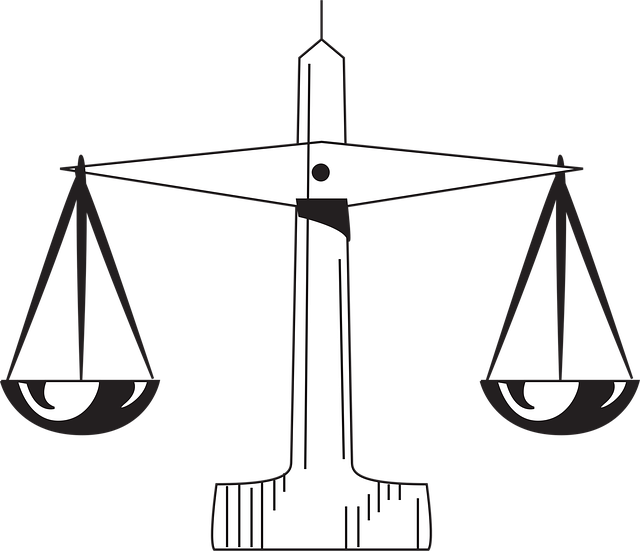Facing contempt charges in Oregon? Engage an experienced local attorney specializing in defense tactics to navigate complex laws, challenge evidence, and employ strategies like motions to dismiss, cross-examinations, mitigating factors, and charge negotiations. This ensures robust arguments, favorable outcomes, and protection of rights. Post-trial procedures require ongoing guidance for successful resolution.
“In Oregon, contempt cases demand meticulous planning and strategic execution. This comprehensive guide equips Oregon attorneys with essential tools for navigating these complex legal landscapes. From understanding state laws to identifying valid defense tactics, building robust case strategies, and presenting compelling defenses, we delve into every critical step.
Explore the intricacies of selecting a strong legal team, fostering collaboration, and mastering post-trial procedures. Discover effective defense tactics tailored for Oregon’s unique judicial environment. Trust this resource as your go-to guide for excelling in contempt case defense.”
- Understanding Oregon Contempt Laws
- Identifying Valid Defense Tactics
- Building a Strong Case Strategy
- Presenting Your Oregon Defense
- Legal Team Selection and Collaboration
- Navigating Post-Trial Procedures
Understanding Oregon Contempt Laws

In Oregon, contempt of court is a serious matter that can lead to significant consequences for individuals found guilty. Understanding the state’s contempt laws is crucial for anyone facing such charges. The Oregon legal system has established guidelines to ensure respect for judicial authority and proceedings. Contempt can be civil or criminal, with civil contempt focusing on non-compliance with court orders, while criminal contempt involves actions that disrupt the court’s ability to dispense justice fairly.
Oregon attorneys play a vital role in guiding clients through this complex process. Defense tactics may include challenging the evidence presented, arguing for an interpretation of the law favorable to their client, or demonstrating that the alleged contumacious act was not willful. Knowledgeable legal counsel can help navigate the nuances of contempt laws, ensuring a fair defense and the best possible outcome for their clients in Oregon courts.
Identifying Valid Defense Tactics

When planning your Oregon contempt case defense, it’s paramount to identify valid defense tactics tailored to your unique circumstances. An experienced Oregon attorney can help uncover strategies that challenge the validity of the contempt charges. This might involve questioning the evidence presented, disproving the alleged violation, or highlighting procedural errors in the filing process.
Valid defense tactics could include motions to dismiss, cross-examinations aimed at weakening the prosecution’s case, and presentations of mitigating factors. An Oregon attorney defense tactics playbook should also consider alternative resolutions like negotiations for a lesser charge or reduced penalties, ensuring the best possible outcome in your contempt case.
Building a Strong Case Strategy

Building a robust case strategy is paramount in navigating an Oregon contempt case. An Oregon attorney specializing in defense tactics will first assess the specific charges and evidence against their client. This involves meticulously reviewing court documents, identifying any procedural irregularities or weaknesses in the prosecution’s case, and gathering supportive evidence that may undermine the allegations.
A well-crafted defense strategy often includes challenging the validity of the evidence presented, questioning the motives behind the contempt charges, and highlighting alternative explanations for the alleged misconduct. By employing these Oregon attorney defense tactics, clients can strengthen their position, potentially leading to a favorable outcome or a significant reduction in the severity of the contempt charges.
Presenting Your Oregon Defense

When presenting your Oregon contempt case defense, it’s crucial to employ strategic tactics that align with state laws and legal precedents. Engaging an experienced Oregon attorney is paramount; they can guide you through the intricate legal landscape, ensuring your arguments are robust and well-structured. Your attorney will help prepare a comprehensive defense strategy, utilizing key evidence and witness testimonies to challenge the contempt allegations.
Effective Oregon defense tactics may include demonstrating that actions were taken in good faith, proving mitigating circumstances, or showing that compliance was impossible due to unforeseen challenges. Through meticulous planning and execution, your legal team can navigate the complexities of the case, ultimately aiming to achieve a favorable outcome that protects your rights and interests.
Legal Team Selection and Collaboration

Selecting the right legal team is a crucial step in any Oregon contempt case defense. It’s essential to find an Oregon attorney with expertise in civil and criminal contempt matters, who can navigate complex legal strategies and advocate for your rights effectively. Look for lawyers experienced in developing robust defense tactics, skilled in court proceedings, and knowledgeable about state laws and regulations.
Collaboration is key here. Your legal team should work closely with you, understanding the unique circumstances of your case. Effective communication ensures they tailor their approach to your specific needs, gathering necessary evidence, and crafting persuasive arguments to present before the court. A well-coordinated defense strategy significantly enhances your chances of a favorable outcome in the case.
Navigating Post-Trial Procedures

After a contempt case reaches its trial phase, navigating the post-trial procedures becomes crucial for both parties. An Oregon attorney representing the defendant should be well-versed in these steps to ensure an effective defense execution. Post-trial, the focus shifts from presenting evidence and arguments to interpreting the judge’s decision and planning subsequent actions. This includes understanding potential outcomes, whether it’s a dismissal or a fine, and how to respond accordingly.
Defendants have rights, and it’s essential for their attorneys to guide them through this period. One tactic could be filing a motion for a new trial if there were procedural errors during the initial proceedings. Alternatively, an Oregon attorney defense strategy might involve negotiating with prosecutors to mitigate any fines or penalties, especially if the defendant has shown remorse and taken responsibility for their actions. This requires skill in negotiation tactics tailored to Oregon’s legal landscape.






